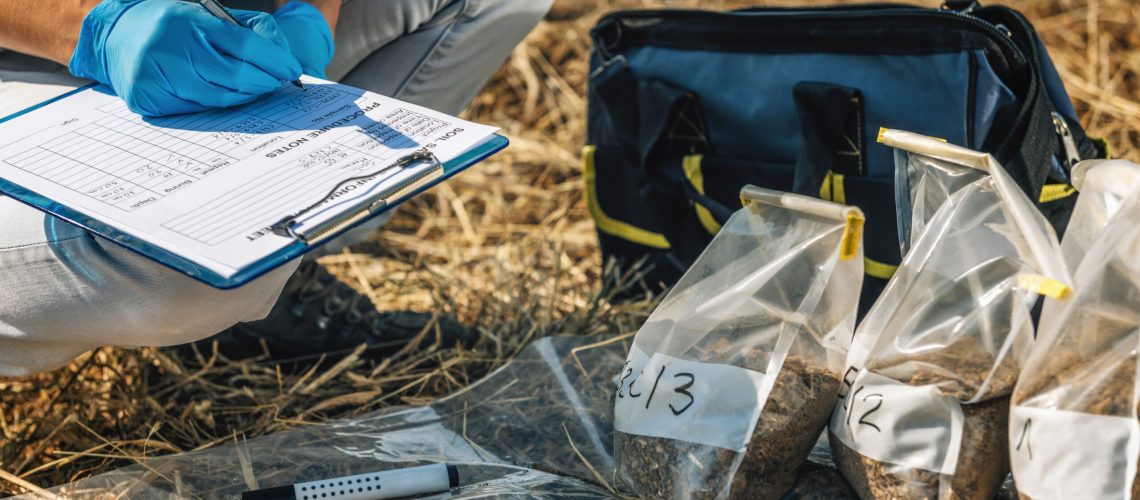Increasing the health of our soil is a top priority. After decades of chemical and pesticide usage, our soil is in poor shape. And since we depend on the soil to feed our world’s population, it is imperative that we change course. Due to this, universities and soil scientists around the world are studying the best ways in which we can increase the health of our soil. One proven way to accomplish this goal is to protect and increase the microbes that live in our soil. Research studies show microbial biomass is the leading indicator of soil health. Living soil fixes nutrients, improves plant immunity, stores water more efficiently, and builds soil structure.
The microBIOMETER, a rapid, on-site soil test for microbial biomass and fungal to bacterial ratio, is leading the way in this important research. Compared to microscopy or other expensive lab-based tests for soil biology, microBIOMETER’s cost-effectiveness and speed make it ideal for academic and university studies and research. Furthermore, all soil testing data is stored in the microBIOMETER app which enables users to easily analyze the data collected. The microBIOMETER soil test kit contains all the supplies needed for these studies. The low cost makes testing supplies attainable for institutions. The testing kits offered include the microBIOMETER soil test Starter Kit as well as kits designed specifically for academic research testing. Below are a few of the many microBIOMETER studies that have been performed:
- David Purdy, Territory Business Manager at John Deere and Soil Health Specialist, utilized the microBIOMETER® soil test in his study titled Assessment of the mircoBIOMETER Soil Biology Test for Agrovista LTD.
- microBIOMETER® study performed in Ecuador showed microbial biomass correlated with crop health in all scenarios tested. The microBIOMETER results were in line with the various farming practices being evaluated.
- A soil study was performed at Stonybrook University to determine the effects of Roundup on soil microbes. The microBIOMETER study papers showed total microbial biomass recovery but there was evidence that Roundup can affect microbial composition.
- At Cornell University, a microBIOMETER study was performed to research the ability of a field section to produce consistent yields despite variable weather. This microBIOMETER study PDF shows the results of the research project.
- In collaboration with the University of Tennessee, microBIOMETER was utilized in a study on conservation agriculture. The microBIOMETER study notes concluded that conservation agriculture increases the soil resistance and cotton yield stability in climate extremes of the Southeast U.S.
- University of Michigan performed a study on the Development of Waste Reduction & Recycling Process. The microBIOMETER study guide for this project concluded that the microBIOMETER soil test allowed the team to quickly evaluate numerous factors impacting the microbiome of various environments.
- In California, microBIOMETER is proud to be working with Foodshed’s Carbon Sink Incentive Program. This pilot program is incentivizing at the point of purchase the adoption and/or ongoing carbon farming practices for the farms in their program. An evaluation of microBIOMETER results allowed them to understand their soil’s biology and its capacity to integrate nutrients, hold water, increase biodiversity, and strengthen the microbial community.
- In addition to university research studies, microBIOMETER is also used at the high school and middle school level to nurture and promote the passion young adults have for soil science. Projects include a 9th grade science fair study on the effects of forest fires on the soil microbiome, and a homeschool project which evaluates the effect of herbicides on the soil. microBIOMETER also created a sample school science project outline for students to utilize.
The microBIOMETER reviews on its use in academic study environments have been extremely positive. However, the microBIOMETER work is not yet complete. The company looks forward to working with more students, professors, and researchers. Along with soil science enthusiasts worldwide, microBIOMETER will continue researching, studying, and gathering data. In collaboration with academia, they will work towards determining the best ways to increase the health of our soil. Our planet is depending on us!


3 thoughts on “microBIOMETER Study”
Comments are closed.